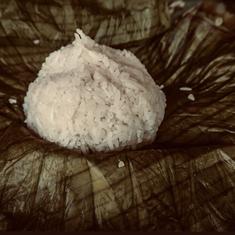The Big Story: Sabka saath
The Bharatiya Janata Party has been making a concerted attempt to dispel the impression that the advancement of its broader cultural agenda has heightened discrimination against lower-caste communities. This perception of the ruling party has been gathering strength since the Una assaults in July, when Dalit tanners in the Gujarat town were beaten up by cow-protection vigilantes. The Una incident brought Gujarat's Dalits onto the same platform for the first time in 30 years, and its ripples were felt around the country, particularly in election-bound Uttar Pradesh where the BJP's own workers were asked to stay away from a rally by a Buddhist monk aimed at attracting Dalit voters to the party.
Since then, Prime Minister Narendra Modi had come out against the violence against community, asking potential attackers to shoot him before assaulting Dalits, while deploying others from the party and Cabinet to establish the BJP's credentials in helping members of the lower castes. In a meeting of top party leaders this week, Modi insisted that nationalists were already with them, but that the BJP now needed to go out and engage with the Dalits – a perfect way to display what the party means when it says "nationalists".
This outreach is, however, going to be muddled because of the obviously discriminatory attitudes many party members display towards members of the lower castes. This was exemplified by a leader who criticised the Dalits in Una (not those beating them up), calling them "dirty". In an interview to the Economic Times published on Friday, BJP President Amit Shah echoes another refrain that is common around right-wing circles: Una was not real.
Asked how he explains the Dalit protests in Una and elsewhere in Gujarat, Shah had this to say: "These were 100% politically motivated." This is expected from a party chief whose government was being criticised by the vast majority of those at the rally. But it also seems to underscore the belief in many circles that Modi's Dalit outreach is merely an exercise in damage control, while the BJP and the broader Sangh Parivar continues to speak in an entirely different voice.
The Big Scroll
- By questioning Rohith Vemula's Dalit identity, judicial panel puts BJP in a spot of bother again.
- Should the tug-of-war between Modi and Togadia over gau rakshaks actually be taken seriously?
- BJP's Dalit leaders fear ostracism from the community as unrest grows.
Political Pickings
- Kashmir Chief Minister Mehbooba Mufti walked out of a press conference after meeting union Home Minister Rajnath Singh on Thursday, but not before insisting that only 5% of people in the state are creating havoc.
- Karnataka Chief Minister Siddaramaiah on Thursday refused to release water from the Cauvery to help Tamil Nadu, saying 2016 was a "distress year" for his state.
- The panel tasked with suggesting an alternative to pellet guns in Kashmir is likely to recommend using pepper balls and tear gas.
- Sucha Singh Chhotepur walked out of the Shiromani Akali Dal to join the Aam Aadmi Party, only to face expulsion after the emergence of a video that shows him accepting money.
- The violence continues in Kannur, where four Rashtriya Swayamsevak Sangh workers were apparently severely injured after Communist Party of India (Marxist) workers attacked them.
Punditry
- The BJP’s nationalism is like a nervous tic that agitates itself every time the party runs out of ideas, writes Shiv Vishwanathan in The Hindu.
- Remarkably, Swapan Dasgupta in the Telegraph tries to insist that the NGO-baiting, sedition-blaming, beef-banning Bharatiya Janata Party-ruled government has a "single-minded focus" on the economy.
- If you want to stop the growth of population, educating women is a great way to get there, writes Dilip D'Souza in Mint.
Giggles
#cartoon @timesofindia #RajnathSingh #Kashmir pic.twitter.com/dJDtD2JhJo
— Sandeep Adhwaryu (@CartoonistSan) August 25, 2016
Don't Miss
Ipsita Chakravarty writes about the identity politics that are feeding new rivalries in Tripura.
The CPI(M)’s wrath may well hide deeper insecurities about the political landscape in Tripura, which is beginning to show the first signs of change. In recent years, a section of the youth in rural areas have been drawn to the Indigenous People’s Front of Tripura and its call for a separate “Twipra land”. Election results for the autonomous district councils also suggest a creeping erosion of the CPI(M)’s vote base.
It doesn’t help the CPI(M) that the Tripura is now on the radar of other regional and national parties. The BJP, which gained a toehold in the region after it won in Assam and recently set up the North East Democratic Alliance, plans to make inroads by striking up tactical alliances with local parties. The Trinamool Congress has long eyed Tripura as it made a push to expand beyond West Bengal.










